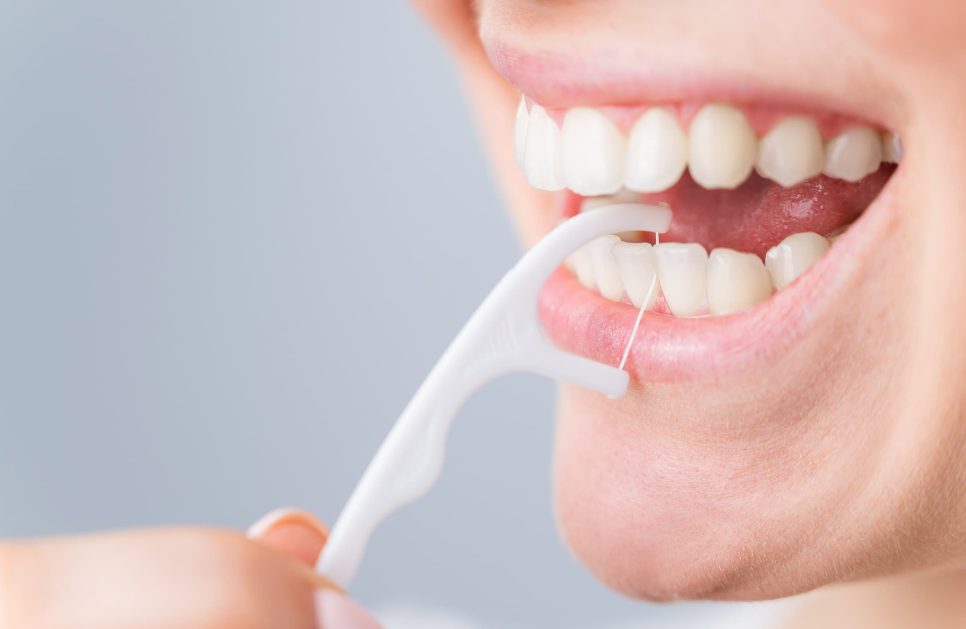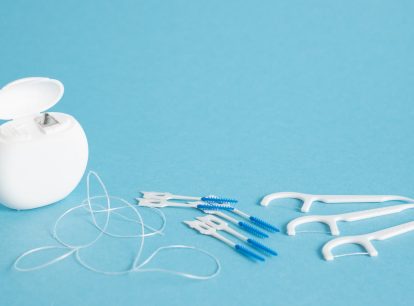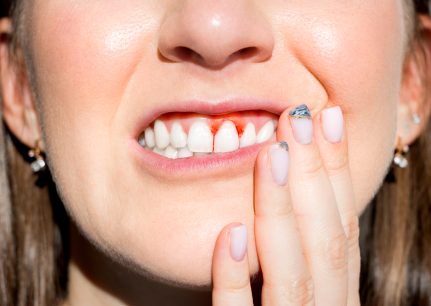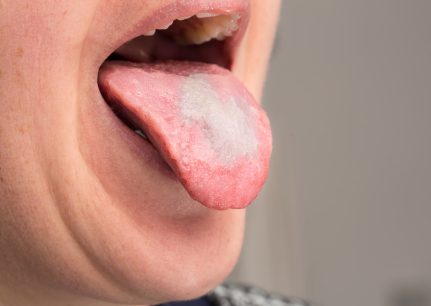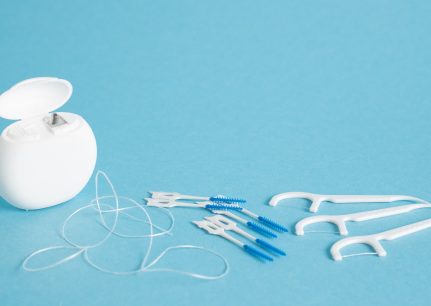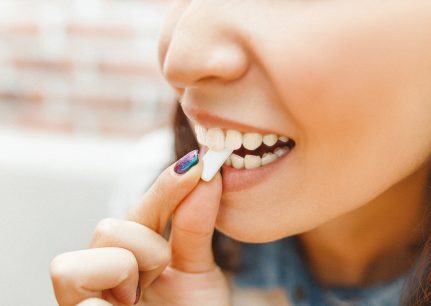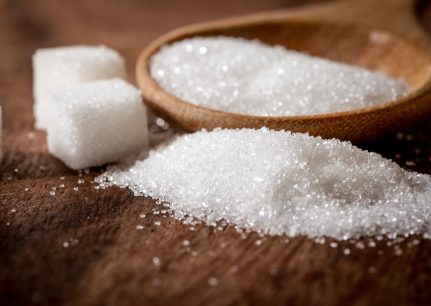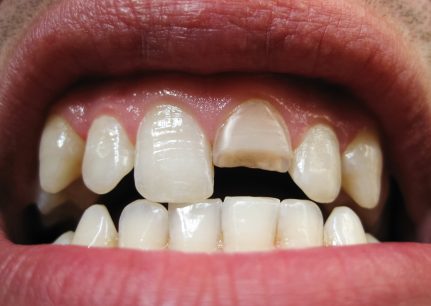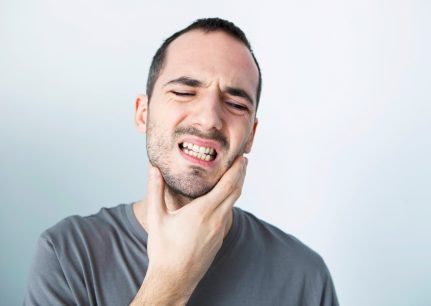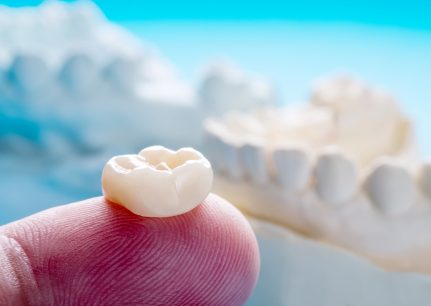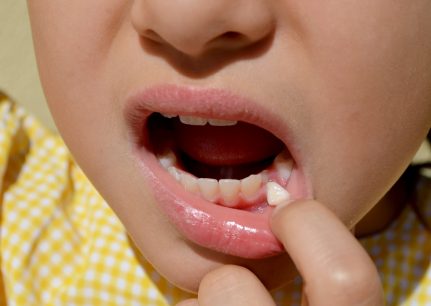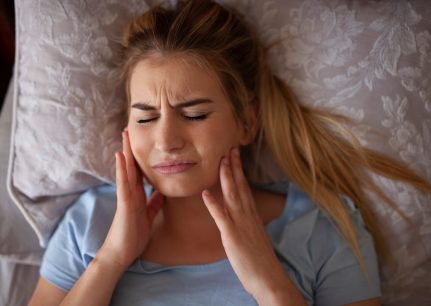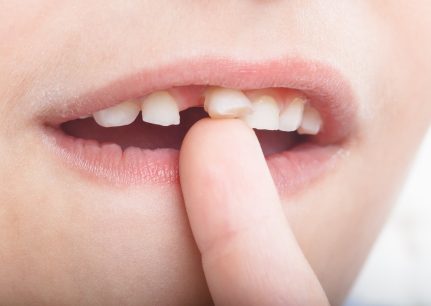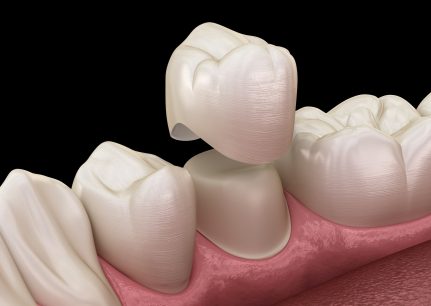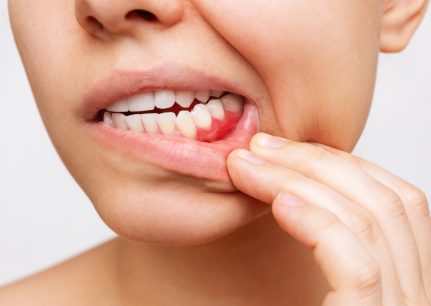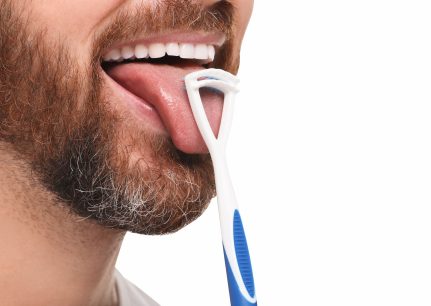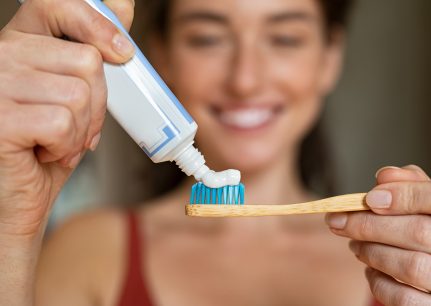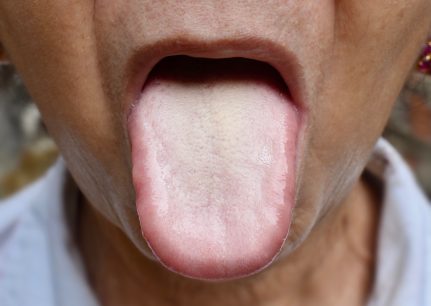Oral Care Tips
Looking after your teeth and gums is important for a variety of reasons. For example, good oral hygiene can help to prevent tooth decay, gum disease and bad breath, and it can increase your chances of keeping your teeth as you age. Here at DenTek, our focus is on providing products that help you to look after your dental health. We also offer oral healthcare tips covering a number of important topics. From general oral hygiene tips to advice on how to use dental floss, we offer information designed to help you to protect your teeth and gums. Click the links on this page to discover more.
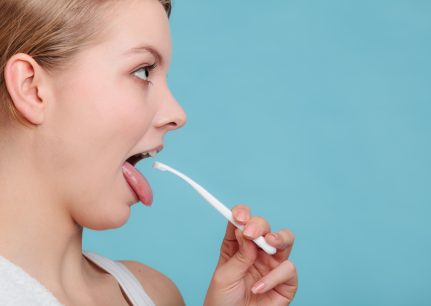
Should you scrape your tongue before or after brushing?

Is there a shortage of dentists?
We all know how important it is to look after our teeth with regular dental check ups, but it can sometimes seem like getting a dentist appointment is more hassle than it’s worth. If you’re struggling to get an appointment for yourself or a loved one, you might wonder why that is.
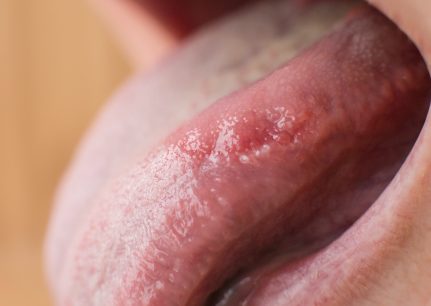
What does leukoplakia look like?
Leukoplakia is usually harmless and it often goes away on its own – but what does it look like, and what are the symptoms of this condition? In this article, DenTek takes a closer look at this condition, explaining how you can establish if you have leukoplakia and what you can do about it.
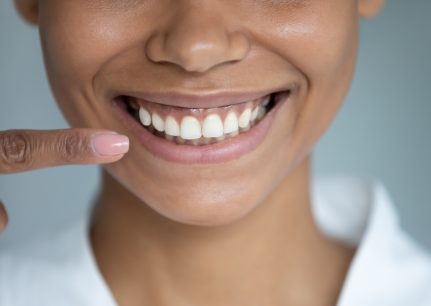
How is oral health linked to overall health?
It’s no secret how important oral health is, but is dental hygiene linked to your overall wellbeing? In this article, we establish whether your teeth can have an effect on the rest of your health, and what you can do to ensure you stay healthy.
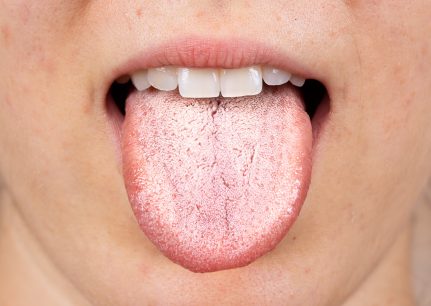
What is leukoplakia?
Leukoplakia is a term used to describe white patches on the tongue. These patches can also appear elsewhere in the mouth – for example, on the gums, the inside of the cheeks, or on the roof of the mouth. The patches are slightly raised and have irregular shapes – in other words, they’re rarely a perfect circle or oval. While they’re mostly white, the patches can appear slightly red in places, but they’re not typically painful.

Does pregnancy affect your teeth?
Pregnancy is an exciting time, and it’s also a time when lots of changes occur in the body. While some are clearly related to the development of the baby, such as the rib cage expanding to allow room for the growth of the uterus, others aren’t quite so obviously linked. As well as things like cravings, morning sickness, and sleep changes, some women find that their dental health is affected over the course of their pregnancy.
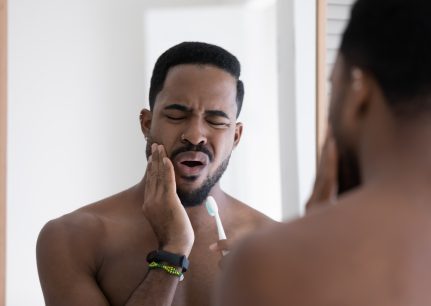
How do I know if I have dry socket?
If you recently had a tooth removed and are experiencing discomfort or other symptoms, you may be wondering if you have a dry socket. A dry socket is a complication of tooth removal. It happens when a blood clot fails to form over, or is dislodged from, the extraction site, leaving an empty socket. In this blog post, we outline the common symptoms of a dry socket.
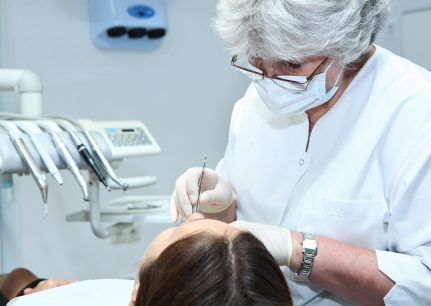
How long does dental anaesthetic last?
If you need to have dental surgery, you may be wondering what to expect. Whether you’re having a wisdom tooth removed, a cavity filled or more complex treatment, it can help to be clued up on what will happen.
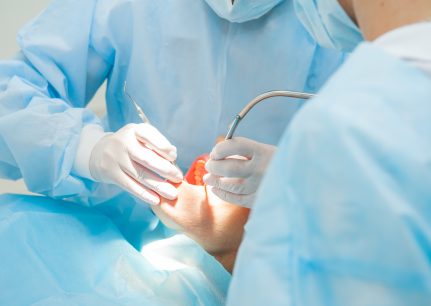
Can you have a reaction to dental anaesthetics?
It’s not uncommon for patients to be nervous about having a dental procedure, especially when anaesthetic is required. Whether you need a mild local anaesthetic or you’re due to go under general anaesthesia for dental treatment, it’s a good idea to be well informed so you know what to expect.

How to keep your teeth healthy while fasting
Are you following an intermittent fasting diet? Or perhaps you’re fasting for religious reasons? Whatever the case, it’s important that you give your teeth the care and attention they need regardless of your eating habits. In this blog post, we answer some of the most commonly asked questions when it comes to maintaining good oral hygiene while fasting, from whether you really need to brush if you haven’t eaten to whether you can use mouthwash.

How to treat a dry socket
A dry socket is one of the most common complications of a tooth extraction. If you’ve had a tooth removed lately and are suffering from symptoms of a dry socket, you shouldn’t ignore the situation. In this blog post, we look at how dry sockets can be treated and we discuss how you can prevent this problem from occurring again in the future.

Can you brush your teeth while fasting?
Fasting involves abstaining from food or drink. People do this for a number of reasons, including for health benefits and as a religious observance. You might be practising intermittent fasting or forgoing food and drink as part of Ramadan. Either way, you’ll be following rules about what can pass your lips and when. But what about your toothbrush? Is it acceptable to brush your teeth during fasting periods? In this blog, we put this issue under the microscope.
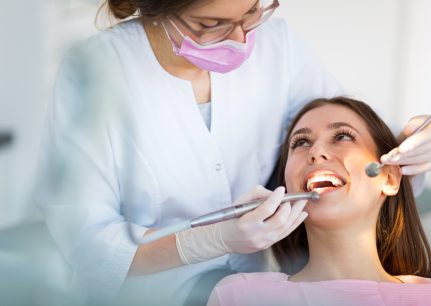
What anaesthetics do dentists use?
Anaesthetics are an important part of dentistry as they are used to numb areas of the mouth in order to perform certain treatments and procedures. But what kind of anaesthetics do dentists use? In this blog post, we tell you everything you need to know. Whether you already have a procedure lined up or you just like to be prepared, DenTek will provide the information you need.

What is dry socket?
Want to find out more about dry sockets and what causes them? Dentek can help. Perhaps you’ve been told you have a dry socket and you want to learn more about how this has happened. Or maybe you suspect you have a dry socket but you’re not quite sure what the symptoms are.
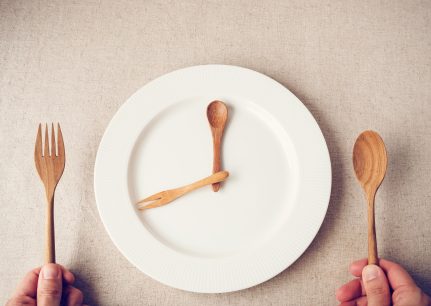
Is fasting good for teeth?
Whether you’re fasting for health reasons or on religious or spiritual grounds, not eating for prolonged periods of time can have a significant impact on the body. But have you ever thought about what effect fasting can have on your teeth? In this blog post, we explore the relationship between fasting and dental health. We’ll find out if abstaining from food can be good for your teeth and answer other frequently asked questions on this topic.
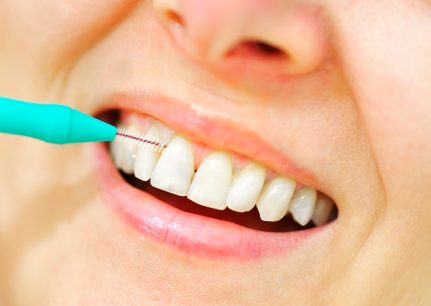
Can interdental brushes damage gums?
If you’re looking for ways to improve your oral hygiene, you may have come across interdental brushes. These brushes are designed to clean between the teeth and in hard to reach areas of your mouth in order to prevent plaque buildup. But can interdental brushes actually damage the gums? After all, people sometimes complain of bleeding gums when they first start using them.

What to do if something is stuck in your teeth
Not only is it irritating – and potentially embarrassing – to have food stuck between your teeth, but it can also lead to dental health problems. If food particles are not removed, they can feed bacteria, which can lead to issues like tooth decay, cavities, inflammation, gum disease and halitosis (bad breath).
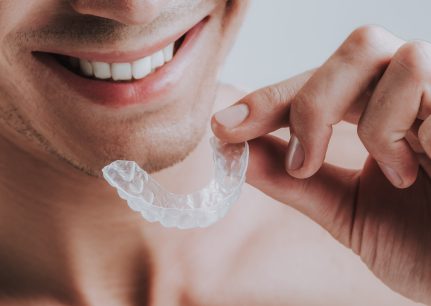
How to treat temporomandibular disorder
Temporomandibular disorder (TMD) is a condition that affects the jaw joints positioned just below your ears on each side of your skull. Characterised by pain, stiffness and popping or clicking noises in your jaw, TMD can have a significant impact on your daily life. It can even make it harder to eat and drink.

How to make tooth pain go away fast
Tooth pain can be hard to ignore, especially when you’re trying to concentrate on something complex like work or school. It can even take the fun out of tasks you usually enjoy, leaving you exhausted and unhappy. Whether you’re waiting for a dentist’s appointment or feeling the aftereffects of dental surgery, getting rid of tooth pain fast can be a top priority.
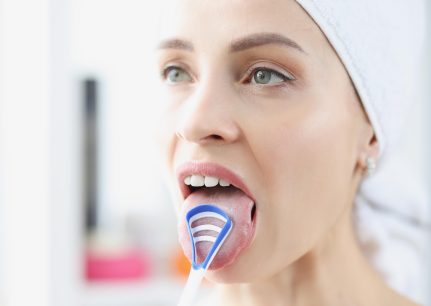
Are tongue scrapers safe?
The tongue is an often overlooked area of the mouth when it comes to oral hygiene. The basics of dental hygiene are well known – brush your teeth, floss or use interdental brushes, use mouthwash, don’t eat lots of sugar. However, none of these principles directly tackle a part of your mouth that sees as much usage, if not more, as your teeth: the tongue.
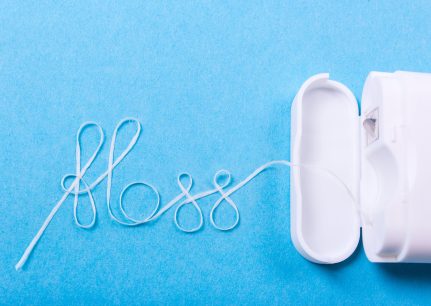
Why do my gums hurt after flossing?
If you often experience pain or bleeding when flossing, it can be discouraging and sometimes scary. It might even be enough to prevent you from flossing at all. Whatever the reason behind it, not flossing can lead to dental problems further down the road. However, gum pain is a common problem that can usually be fixed, allowing you to maintain a healthy oral hygiene routine that your teeth will thank you for.
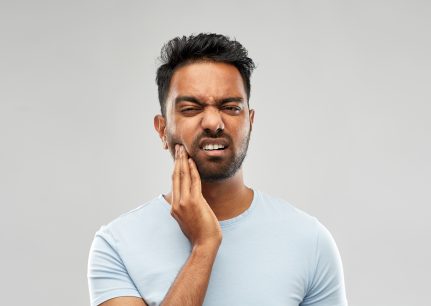
What is temporomandibular disorder?
Temporomandibular disorder (often abbreviated to TMD) is a condition that affects the movement and use of your jaw. It mainly affects the temporomandibular joints, which is where the temporal bone and the mandible (jaw) connect. The temporal bones are located on either side of the skull where your ears are, and reach up to your temples, which is where the bone gets its name from.
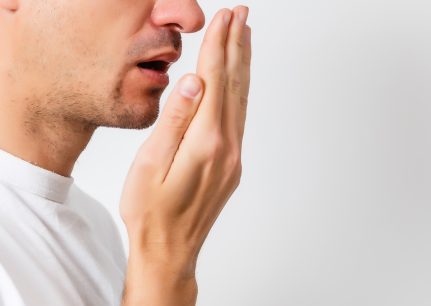
How to get rid of bad breath quickly
Bad breath is a common dental problem that often leaves people feeling self-conscious. It can have a huge impact on a person’s social and professional confidence, which could lead to isolation, missing out on opportunities and ultimately not enjoying themselves as much as they could. So what should you do if you notice you have bad breath?
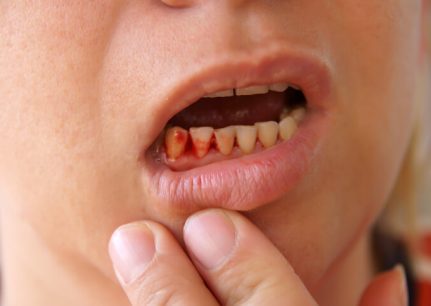
What is gum infection?
Often referred to as gum disease, a gum infection can be a painful condition. There are three stages to gum disease: gingivitis, periodontitis and advanced periodontitis.
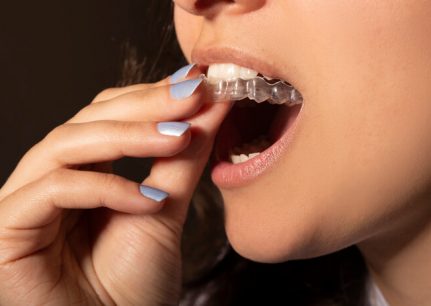
How to clean retainers
As you can imagine, retainers pick up a lot of food and bacteria while they’re in your mouth, and so they need cleaning just as your teeth do. Keeping your retainer clean is a vital part of your dental hygiene routine – but doing it wrong can prevent your teeth from getting the best results from the treatment.

What is a tooth abscess?
A tooth abscess or dental abscess is a pocket of pus that builds up in the gums or teeth. It’s usually caused by an infection or injury in your mouth. If you have a tooth abscess, you will need to be treated by a dentist. A tooth abscess will not go away on its own, and could cause further damage if not treated.
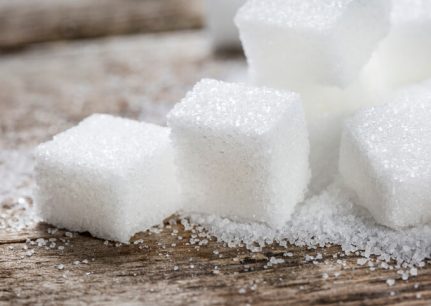
Why is sugar bad for your teeth?
Whenever the topic of which foods are good for your teeth is discussed, sugar always lands firmly on the side of being bad for your dental health. You might know that eating too much sugar is bad for your overall health, and you might have been told by your dentist that sugar can cause cavities – but do you know how sugar affects your teeth?
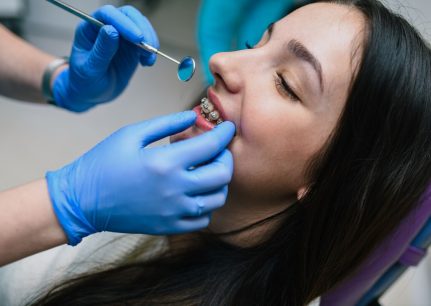
How do braces work?
The term braces covers a range of orthodontic devices that work to align and straighten your teeth. They can be used to fix problems such as crooked or overcrowded teeth, and some can help to reduce an overbite. Braces are usually made of metal or ceramic, with wires and elastic bands used to hold them in place – an orthodontist will fit them to your teeth.

What foods are good for your teeth?
Maintaining good dental hygiene isn’t just about how well you clean your teeth – it’s also about what you put in your mouth. When we eat or drink, we’re essentially coating our teeth and gums with bits of whatever we’re consuming. Very small particles of food will remain in your mouth even after you swallow, and those particles can have an effect on your teeth.
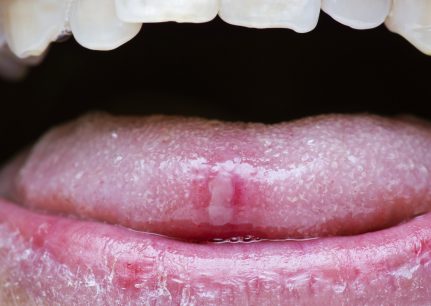
What is a canker sore?
A canker sore is a small, painful abscess found in the inside of your cheeks, your gums, or sometimes on your tongue. They are sometimes referred to as mouth ulcers. Though they aren’t usually anything to worry about, you should speak to a doctor or dentist if a single ulcer lasts longer than three weeks.
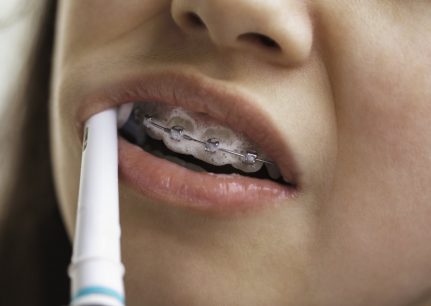
How to clean teeth with braces
Keeping good oral hygiene is important for everyone, but it’s even more important for people with braces. This is because food particles and plaque will build up not only between your teeth, but also between the braces and your teeth. Simply put, braces create more nooks and crannies for food to get stuck in.
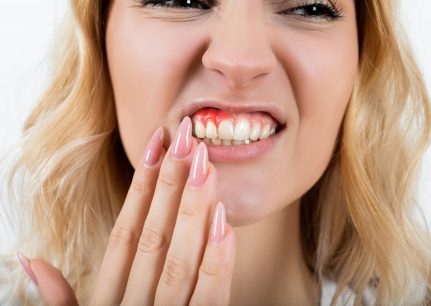
How to treat gum disease
Caused by untreated plaque that builds up on and around your teeth and gums, gum disease – which can take the form of mild gingivitis or the more serious periodontitis – can be an irritating and painful condition. If the bacteria that makes up plaque is not regularly removed through brushing and flossing, buildup can lead to swollen and bleeding gums.
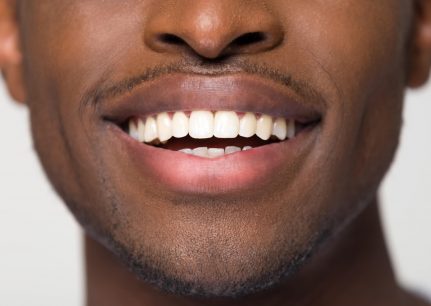
What is enamel and why is it important?
While most people understand the important role a good dental hygiene routine plays in keeping teeth and gums healthy, not everyone understands what enamel is and how important it is when it comes to oral health. However, the fact is, taking care of the enamel on your teeth is half the battle when it comes to good dental care. While we have recently explored ways to strengthen the enamel on your teeth, in this handy guide we explain what enamel actually is and why it is so important.

Are you brushing your teeth too hard?
While we all know that maintaining a good oral hygiene routine is essential to keep your teeth clean and healthy, and that failing to brush and floss can lead to a range of dental problems, knowing how to correctly brush is not always clear. With this in mind, one of the most common mistakes made when it comes to brushing your teeth is the pressure applied with your brush. Indeed, while you may think brushing harder will be more effective at removing plaque and dislodging stubborn food particles from your teeth, on the contrary, brushing too hard can actually be harmful to your oral health.

How to help sensitive teeth
Typically caused by worn enamel or exposed roots, those who suffer from sensitive teeth usually experience some level of pain or discomfort when eating very cold or hot foods. While we have recently explored the reasons why teeth become sensitive, in this handy guide we outline some of the most effective ways of treating your teeth to ensure sensitivity is reduced.
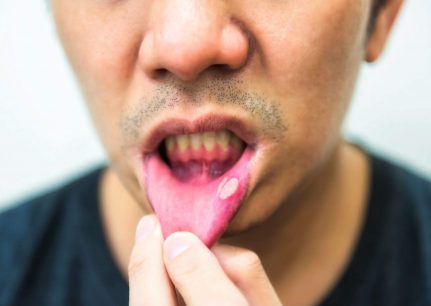
Mouth ulcers – causes and treatments
Chances are you’ve experienced a mouth ulcer before. They can be extremely painful and uncomfortable, but it’s important to remember that they are very common and are rarely a sign of anything serious. So what exactly is a mouth ulcer and why do they hurt so much? In this article, we take a closer look at how you can avoid mouth ulcers to maintain good oral hygiene, and what you can do to help treat these types of sores.
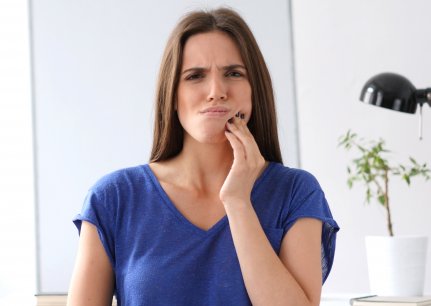
Why do my gums hurt?
You may have experienced toothache before, but what about gum pain? The tissue that our gums are made from can be sensitive, which means they react to all sorts of things and become red, sore and swollen. There’s usually a reason for such symptoms, so read on to find out what may be causing your gums to hurt and how to resolve the issue.
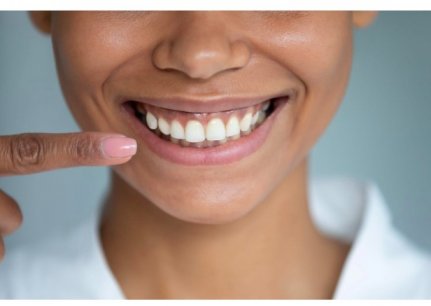
6 Ways to Strengthen Weak Enamel
Enamel is the tough substance that makes our teeth white and protects them from the bacteria present in our mouth. While it’s normal for enamel to gradually wear away or weaken, it’s really important that you look after your teeth to keep it strong. Below, you can find some of the top ways to strengthen enamel.

Using eco-friendly dental care products
Globally, we now produce around 300 million tonnes of plastic waste each year, and much of this ends up in the oceans, killing marine life and damaging ecosystems. The scale of this problem can seem overwhelming, but there are steps you can take as an individual consumer to make sure you’re doing your bit to protect the planet.
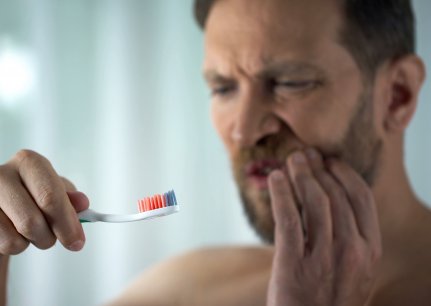
Answering all your ‘Can gum disease…’ queries
Gum disease is a problem that many people experience at some point. It is a condition where the gums become sore, swollen or infected, and bleeding when you brush your teeth is a tell-tale sign that you may have this problem.
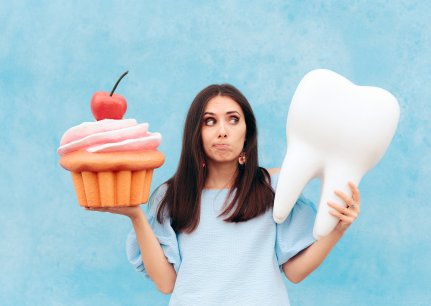
How to reduce teeth sensitivity
Tooth sensitivity is usually caused by worn enamel or exposed tooth roots, however, a poor oral hygiene routine could be the reason too. When you don’t brush your teeth as often as you should, plaque buildup can lead to cavities, which could explain why your teeth are sensitive.
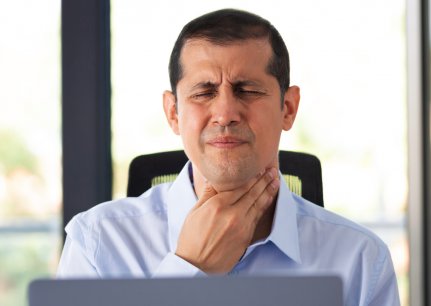
Can bad breath come from the stomach?
If you suffer from bad breath (halitosis) and are looking for ways to eliminate it for good, it’s important you look to address all possible causes. While causes such as poor dental hygiene, smoking, recently consumed food, and the use of certain medications are often the first you consider, did you know the issue could in fact be stemming from your stomach?

How to explain plaque to a child
Encouraging children to take care of their own teeth and gums can be tricky. While the process needs to involve explaining what dental plaque is and what can happen to their teeth if they are not properly cared for is essential, dental education needs to be taught in a fun way that does not bore or frighten them.

Everything you want to know about morning breath
Bad breath, also known as halitosis, is something that affects many people. Bad breath that occurs after a night’s sleep is often referred to as ‘morning breath’. If you’ve ever woken up with a bad taste on your tongue and a foul odour coming from your mouth, you’ll know what we mean.

How to remove plaque at home
We all want to have a Hollywood smile, but not everyone finds it easy to keep their teeth pearly white. If you, like many people, struggle with dental plaque, you’ll be pleased to know that help is at hand. In this blog post, we discuss how to get rid of plaque between your teeth and below the gum line. We also talk about how to remove hard, stubborn plaque, as well as providing preventative tips.
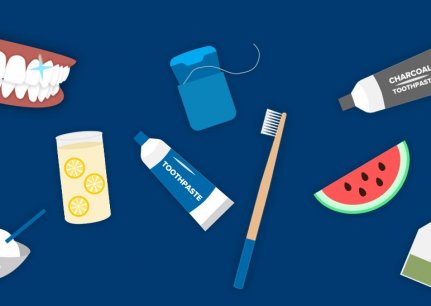
Tooth Be Told: Debunking Dental Myths and Misconceptions
There’s no denying that your oral health is paramount – but with so many different dental-related myths and misconceptions out there, sometimes it can be tricky to know what you should and shouldn’t do when it comes to looking after your teeth and gums.
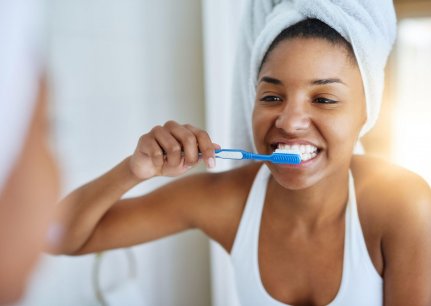
What causes plaque?
There’s no denying just how important your oral health is, and it’s likely you’re already aware of the fact that you should brush, floss, repeat on a daily basis. However, if you’re guilty of letting your dental regime slip, you might find that you eventually come across some problems – such as plaque buildup.
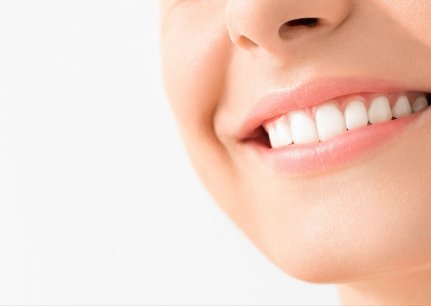
Sets of teeth in humans
There’s a good chance that you understand the importance of dental hygiene, and that in order to look after your oral health properly and avoid developing teeth-related problems, you must make sure that you are brushing and flossing your teeth regularly, in addition to visiting your dentist for routine check-ups. But how much do you really know about your teeth?
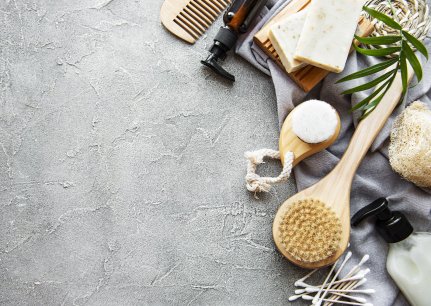
How to go plastic free in the bathroom
Many of us are now very aware of how our plastic usage is affecting the planet. Photos and videos of sea animals stuck in can rings or with plastic straws causing them injury are all over our social media feeds. It’s no wonder that so many people are looking for ways to reduce their plastic usage, and one of the best places to start is the bathroom.

How to eliminate bad breath for good
We all suffer with bad breath from time to time. When you consider the amount of bacteria and food particles in our mouths, it’s not really surprising. Usually, a good hygiene routine is the answer, brushing your teeth at least twice a day and flossing to get into all those little nooks and crannies. But sometimes, bad breath, also known as halitosis, could actually be caused by other things, such as poor diet and smoking.
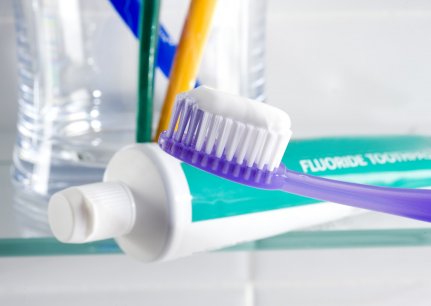
Is fluoride good for your teeth?
It seems that fluoride has been a widely debated substance for some time. With claims that there are risks associated with putting it into toothpaste and our drinking water, we at DenTek wanted to put these claims to rest. The truth is, fluoride can be good for your teeth when taken in small doses, such as in toothpaste. Read on to find out more about where this substance comes from and why it’s so good for your teeth.
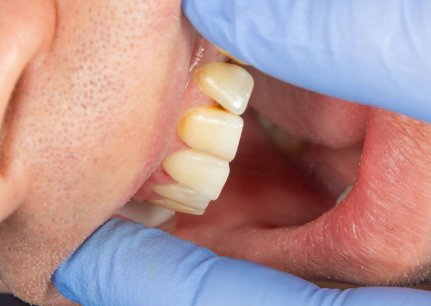
What is plaque and what does it look like?
We’re all reminded of how important it is to brush our teeth, from when our parents nag us as children to when our dentists remind us as adults. But one of the main reasons why it’s such an important task is it removes plaque. You’ve probably heard of this substance that appears on your teeth, but what exactly is it and what does it look like? Read on to find out more.

The causes of bad breath (halitosis)
Bad breath – also known as halitosis, oral malodor and fetor oris – can be an embarrassing and uncomfortable condition. While it can be tempting to turn to mouthwashes, chewing gum, mints and other off-the-shelf products in an attempt to tackle the issue, these are typically only temporary remedies that simply mask the smell rather than remove it. In order to solve the problem of bad breath, you need to find and treat the root cause of the issue.

Why are my teeth so sensitive to cold water?
If you’ve ever felt dental discomfort after drinking something cold, whether it’s a mild twinge or a pain that lasts for hours, you’ll know how unpleasant and frustrating it can be. You may find that you’re bracing yourself every time you take a sip of water or you may start to avoid drinking cold drinks altogether.
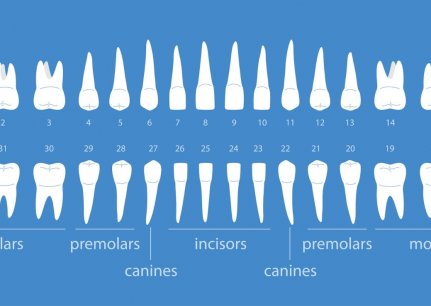
What are the different types of teeth and their functions?
Teeth are a crucial part of the body that enable us to eat and speak. Looking after your teeth is a simple process for most people. Providing you brush your teeth properly, floss, use mouthwash daily, visit the dentist regularly and use effective dental products, you shouldn’t have any serious issues with your dental health.

A guide to children’s teeth
During a person’s childhood, their mouth will go through several stages of development, starting with baby teeth and resulting in adult teeth. Also known as milk teeth, baby teeth are temporary teeth that prepare the gums of children for adult teeth.

What to do if a filling falls out
Fillings are fitted in a way that ensures a strong hold on teeth to cover sensitive, open areas beneath. But, unfortunately, this doesn’t make them invincible, and through general chewing, changes to the shape of teeth caused by tooth decay and regular wear and tear, fillings may fall out.
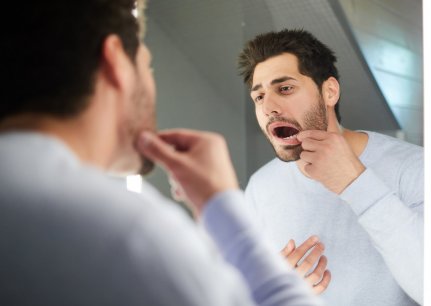
Can you treat a cavity at home?
A form of tooth decay, cavities are holes in teeth that form when teeth aren’t brushed correctly and food isn’t properly cleaned away from the surface of teeth. The sugar and acid in certain foods will then wear away at the enamel on teeth before penetrating the surface.
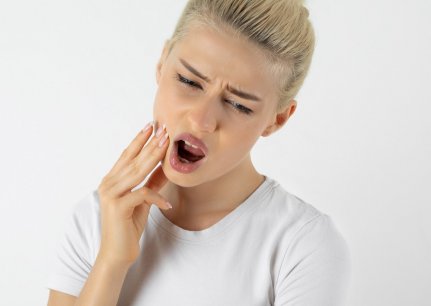
A guide to receding gums: what they are and how to stop them
Brushing your teeth is such an important part of your daily hygiene routine. It’s likely that you were taught from a young age that you must brush your teeth to keep them clean, white and healthy. But what are the guidelines around brushing your teeth?
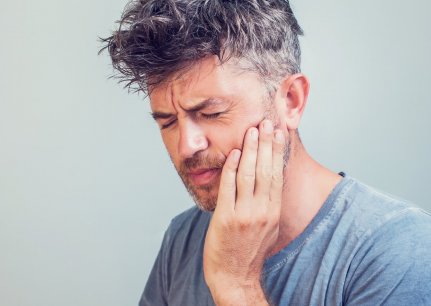
How to prevent cavities
Brushing your teeth is such an important part of your daily hygiene routine. It’s likely that you were taught from a young age that you must brush your teeth to keep them clean, white and healthy. But what are the guidelines around brushing your teeth?

What happens when you don’t brush your teeth?
Brushing your teeth is such an important part of your daily hygiene routine. It’s likely that you were taught from a young age that you must brush your teeth to keep them clean, white and healthy. But what are the guidelines around brushing your teeth?
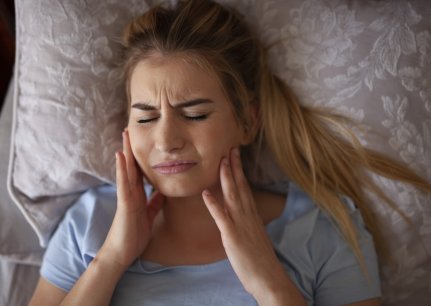
How to stop grinding your teeth
Brushing your teeth is such an important part of your daily hygiene routine. It’s likely that you were taught from a young age that you must brush your teeth to keep them clean, white and healthy. But what are the guidelines around brushing your teeth?

How often should you brush your teeth?
Brushing your teeth is such an important part of your daily hygiene routine. It’s likely that you were taught from a young age that you must brush your teeth to keep them clean, white and healthy. But what are the guidelines around brushing your teeth?
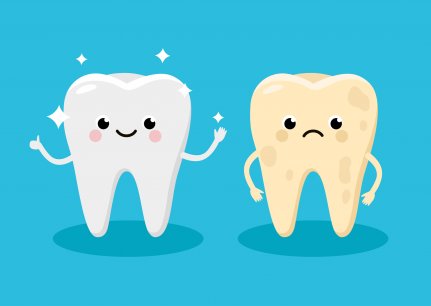
What causes yellow teeth and how can you make them whiter?
Red and swollen gums are relatively common symptoms that can occur in any adult. Swollen gums may be painful and you might be wondering why this problem has arisen. Read on to discover more about gum inflammation and how to prevent it.

Swollen gums: why it happens and how to prevent it
Red and swollen gums are relatively common symptoms that can occur in any adult. Swollen gums may be painful and you might be wondering why this problem has arisen. Read on to discover more about gum inflammation and how to prevent it.

How to get an emergency dentist appointment
If you’re experiencing a serious dental problem or you’re in considerable pain, the best thing you can do is to see a dentist as quickly as possible. Luckily, surgeries offer what’s known as an emergency appointment to cater for this kind of situation.

How Do You Floss Properly?
Flossing can help to dislodge food particles that have become stuck between your teeth during the day and reduce the amount of plaque and bacteria that builds up on your teeth and gums.

Why Should You Floss?
As part of a healthy oral hygiene regime, you should brush your teeth twice a day for about two minutes using a fluoride toothpaste. However, brushing will only reach around 60% of the surfaces of your teeth.

Oral Hygiene Advice
There are a variety of things you can do to help keep your teeth and gums healthy. From regular brushing to using plaque removal tools, we’ve put together the following oral hygiene advice to help ensure you’re in the know when it comes to this important topic.





